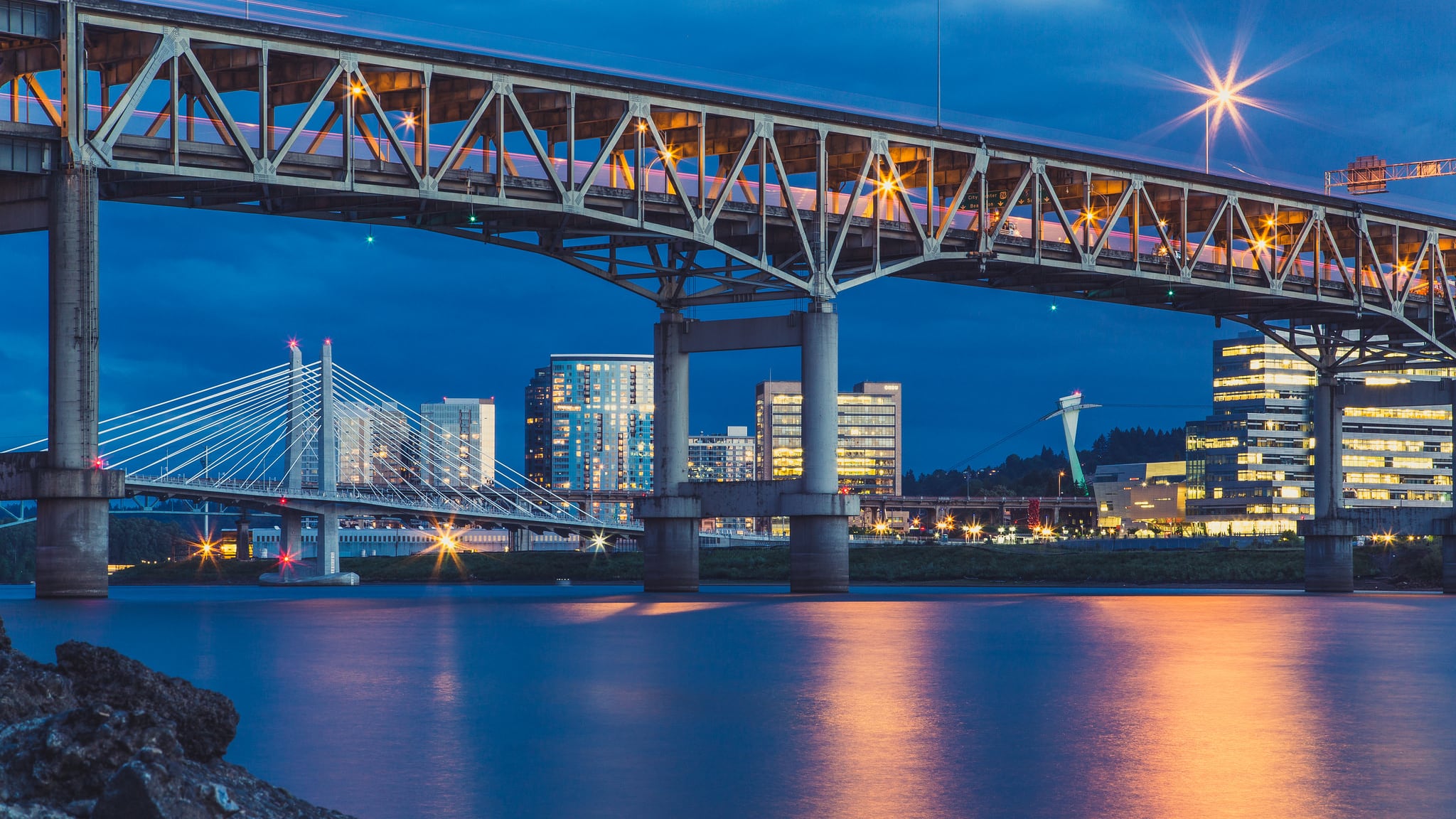The Port of Portland and the environmental lobby have become unlikely allies in a sweeping plan to address Portland's traffic problems.
The port and the Oregon Environmental Council are pushing for congestion pricing on all of Interstates 5 and 205 in the metro area. That means tolls from the Washington border to where the highways meet in Tualatin, with prices that would adjust based on traffic.
No U.S. city has ever implemented a large-scale effort to use tolls at peak hours to control traffic—and a broad base of support could change that.
"As an economist, I say, 'Hallelujah and welcome to the team' to both of them," says Joe Cortright, who is aligned with the group No More Freeways PDX, which is pushing for the tolls.
Some of the obstacles to congestion pricing are already apparent: The prospect of tolls brings out members of the public to testify against them, as they did last week, and there is persistent criticism that low-income workers pushed to the edges of Portland by rising housing costs would be disproportionately affected.
Related: People priced to the edge of Portland now face the expensive prospect of highway tolls.
But environmentalist and business interests coming together would be a powerful political force that could overcome opposition. The port could help galvanize business support, and the environmentalists could stiffen the spine of Democrats nervous about offending constituents.
Last month, the Oregon Department of Transportation sought input from an advisory committee on where to place tolls as part of a massive new transportation package the 2017 Legislature approved.
Although the committee recommended a pilot project on a portion of I-5 and the Abernethy Bridge of I-205, both the port and OEC recommended the more expansive option.
It's a rare alliance. In the past decade, the port warred with environmentalists over its support for the Pembina propane facility, for the deep-water port at the natural area of West Hayden Island, and for the Columbia River Crossing, a $200 million effort to replace the Interstate 5 Bridge between Portland and Vancouver, Wash.
All these controversial projects have failed.
But in January 2015, the Nature Conservancy brought together business leaders and environmentalists to discuss ways to address climate change.
"We wanted to find strategies that would reduce emissions while being positive for Oregon's economy," says Catherine Macdonald, a spokeswoman for the Nature Conservancy in Oregon.
They picked tolls as one key approach, she says. "The business leaders on the task force influenced the Nature Conservancy's identification of the importance of this strategy."
The port has its own reasons to support the plan. It's in the business of facilitating the movement of freight and people. Tolls could reduce traffic, making it easier for trucks to move cargo.
In a June 22 letter summarizing the port's desire to see the greatest possible tolling, port executive director Curtis Robinhold wrote: "The outcome needs to be worth the effort, or the public will never buy into it and our opportunity will be lost. To me, 'worth it' means: a noticeable reduction in congestion."
Environmentalists have a different interest: reducing greenhouse gas emissions. In traffic terms, that means less driving and less waiting in traffic.
"Congestion…adds to the climate crisis and impacts the health of those who live near busy transportation corridors," wrote OEC deputy director Chris Hagerbaumer in a June 28 letter.
In an interview, Robinhold takes exception with the notion that the port is an unlikely ally of the environmentalists, citing the port's record of buying 100 percent renewable energy at Portland International Airport, for example.
But he acknowledges if a broad coalition of business leaders and environmentalists can agree on congestion pricing, state leaders should pursue tolling across the region, not just on a fraction of the highways.
"If those guys align on the outcome, let's go large," he says. "Let's do the big idea."
Two things could challenge this new alliance between environmentalists and the port.
First, the details of the proposal still need to be worked out, including the price of tolls. And already, OEC and other groups are pushing for tolls before adding a lane on each side of I-5 in the Rose Quarter while the trucking groups, supportive of the plan, are pushing hard for highway expansion.
Second, there's resistance from Washington state—home to many a Portland car commuter.
In the decade-long machinations around the proposed construction of the Columbia River Crossing project, which could have meant a new interstate bridge and the extension of light rail to Vancouver, opposition from Clark County played a big role in the project's doom.
Clark County officials have weighed in to oppose even the more modest toll recommendation along I-5.
That opposition may matter less this time. Tolling requires no federal funding, and some right-wingers like tolls. But the Trump administration has to sign off—and it's expected to consider the input of U.S. Rep. Jaime Herrera Beutler (R-Wash.). She introduced a bill last year to bar the tolling in Oregon.
"It's hard to predict with the regime that currently controls the federal government," says David Bragdon, former Metro president and now executive director of the New York City-based research and advocacy group TransitCenter.
But he points to London, Stockholm and Singapore, which have pioneered citywide tolls. "If you want to have reliable flow of traffic, congestion pricing is the only thing that's been shown to work."
